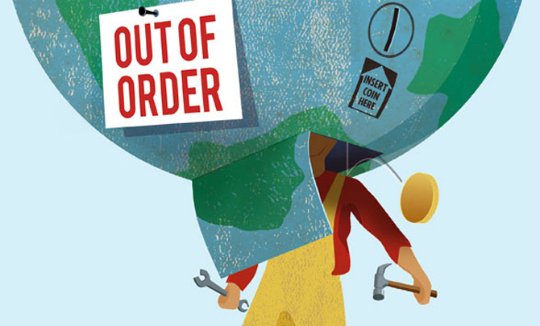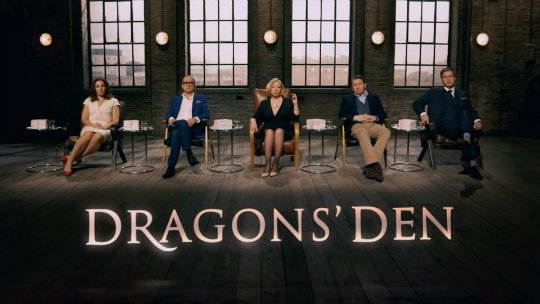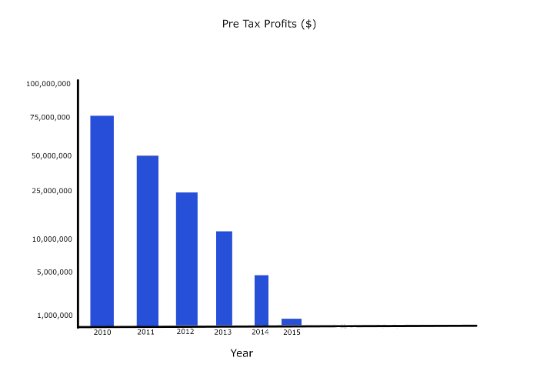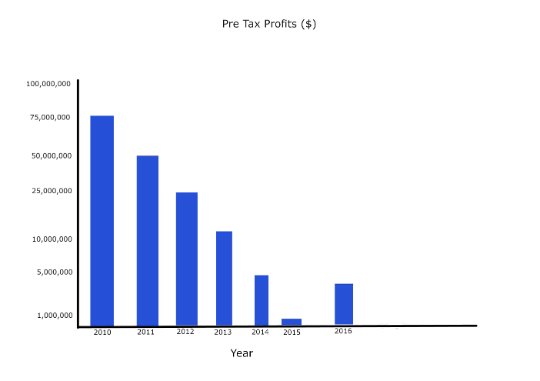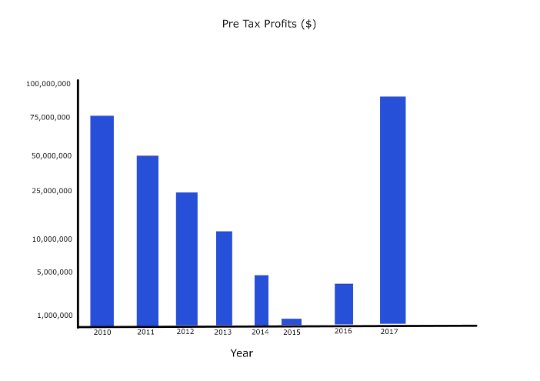As a driving philosophical force, to shape, nurture and guide society, capitalism, in its current form, is broken the current situation cannot continue, we need to change our current way of thinking, because it is that, which is flawed.
Perhaps every movement that has millions of humans believing in, and following it, has a major flaw, an elephant in the room that nobody is prepared to talk about. This manifests itself as a group-wide cognitive dissonance, which enables the group to ignore the flaw and create its own truth.
I have two major problems with the capitalist paradigm that I have grown up in. The first of my bugbears is short-termism, and the second is, positive/negative reporting (the tendency to report good news as bad); both problems are intrinsically linked; essentially existing as two sides of the same tainted coin.
Below, I shall explore the two problems and argue that the problems of short-termism and positive/negative reporting, are all pervasive; infecting us individually and ultimately, society as a whole.
The Fastest Way To Ruin A Company
One of my favourite TV shows here in the UK, is Dragons' Den, it is cousin to the American show, Shark Tank, though on a smaller scale. The richest Dragon in the Den has a net worth estimated at circa $250,000,000 around ten times less than the richest Shark, billionaire, Mark Cuban.
The show is quintessentially English, as inventions like the armchair with a built in treadmill attached, testify to. However, even though I love the show, it frequently highlights the capitalist disease of, being obsessed with performance, both actual and predicted, in the short term, in other words short-termism.
A question that is asked to every single person seeking investment on Dragons' Den, and I'm sure in the Shark Tank too, is;
"What are your three year projections?"
Whilst it may be prudent to pay extra attention to the first few years of your fledgling business; the Den contestants, are never asked where they see the business in 10, 20 or more years.
In the few Shark Tank episodes I've watched, the 3 year projection question seems to have been replaced with:
"What's your exit strategy?"
This question alludes to how fast the contestant is looking to cash in, once they have a profitable business; the contestants know that the Sharks are less likely to invest in someone who doesn't want to sell their business more than 5 years after they've started it.
Crazy!!
This short-termist view isn't shared by all; the New York Stock Exchange was incorporated in 1817, and foreign companies have been listed on it since the late 19th century.
However, up until 1993, there wasn't a single German company on the NYSE, it wasn't until Daimler, as a prerequisite to its merger with Chrysler, became the first organisation from that country to be listed.
This strange phenomena can apparently be traced back to the fact that the Germans see a company as something that has been created to last for a long time. So the thought of submitting financial reports every 3 months, was and in many cases still is, considered madness.
By focusing on a company's performance in small short-term chunks, you are missing the bigger picture. Using short-term methodology, a company that has been sucessful for 10 years, can suddenly have doubt placed on their validity because of 3 bad quarters in a row. The company may well last another 20 or 30 years, however we see time and time again, the value of a company's stock fall because of a few bad quarterly reports.
This malaise doesn't only effect us on an economic and corporate level, it seeps into our very way of being, each individual living in this paradigm, is imbibing the intoxicating beverage of capitalism, and with it, comes the hangover of short-termism.
Perhaps that is why Daimler-Chrysler announced in 2010 that due to restrictive accounting legislature, they were quitting the NYSE. Today, out of the 11 German blue chips listed between 1993 and 2002, only 3 remain; Deutsche Bank , Fresenius Medical Care, and SAP
The Politics Of Right Now
Until I read the words in a book, it had not consciously occurred to me that, for the large majority of my life; I have been mortgaging the future to pay for the present; a kind of social quantitative easing, if you will indulge me a crude metaphor.
When I was younger, any money I made, or time I had; I spent with the express purpose of having a great time at the time. I didn't give a hoot for the future beyond a few months; I rarely if ever tried to visualise 5 years into the future, beyond any arbitrary, wish-making, way.
I had been financially independent from the age of 18, yet my savings at the age of 35 were a big fat juicy, zero. Why bother saving for ten years time, when there are things to consume right now; You Only Live Once, right?
My argument is that this attitude is drip fed from the top down, first of all through corporate capitalism, and then it is enforced through, capitalist democracy; here we have 4 yearly elections, instead of quarterly reports.
In the same way a company can't really give a true representation of its long-term efforts, in a 3 month period; so neither can an elected government.
How many times have we seen well meaning politicians, demand sensible, long-term solutions to be implemented; only to ignore those same demands?
If we take corruption out of the equation; what are we left with? We are left with a politician who gets elected to power, and sees many long-term solutions that he can put in place immediately for little cost. However one year into his term, he realises that he is only 12 months away from being halfway to his next election.
At this point he realises he needs to be able to give a good interim report on his performance thus far; the politician now starts to look for short term changes he can make. Now it is not about the best you can do for your borough, city, or country; it becomes about what you can do that will make you look good in the short-term.
In the last year of your term, you start to think, what's the point of implementing long term solutions now? They'll take 10 years plus before people notice any change, and by that time you'll be long gone, and someone else will get the credit for it.
Of course, whether it is a politician or a corporation, if things are going badly week after week, month after month, it would be negligent not to investigate, and to try to turn things around in the short-term. However it is the focus on the short-term, at the expense of the long, that ultimately leads to the type of negativity that can turn a good thing bad; like a nice big fresh fish, left out in the sun.
Things Can Only Get Worse
If I was to describe the phenomena of the negative reporting of a positive subject, I would say it is the; "things can only get worse attitude.
If we hold the analogy of an elephant in the room of capitalism that everybody is conveniently ignoring; then short-termism, would be the back of the elephant, and when he turned to show his front, we would see positive/negative reporting.
We've all seen and heard it; in fact, if you watch the financial section on the news, and/or read the financial press, you will probably have witnessed it within the last couple of days.
"So-And-So Corporation today announced its pretax profits fell 10% from 200 million dollars last year to just 180 million this year. Their share price fell by 1%, blah, blah, blah, blah..."
Time and time again, we are told that it is bad news when a company makes less money than it did 12 months ago. Let's get one thing straight here...
...they are talking about profits! People made money; great! fanfriggingtastic! Woohoo! $180,000,000 is a lot of moolah, let's all go out and have a party!
But no, wait; we can't, because the shareholders are demanding to know why they have had to cut back on ivory backscratchers and the CEO has just been fired for failing.
WHAT????
Seriously; what?
I have never got this attitude, if you make money, you make money, and if it's a lot of money, then it's all gravy; yet we feel this need to cancel out any positivity by comparing it to a previous positive event and turning it into a negative.
Again this seeps into the political arena and poisons the thinking of nations, we hear how unemployment isn't falling as fast as it was; or the economy's growth has slowed.
OK, OK, that sounds bad, but unemployment is still falling right? Our economy is still growing, just slower right? So what's the big whoop?
It seems that by repeating the detrimental phraseology of positive/negative reporting, societies are slowly being hypnotised into believing everything is doom and gloom, and there is little hope for pretty much anything. So is this a conspiracy to keep us all so miserable we just buy stuff to make us happy; or is it a status quo arising from the human condition?
In 1996 a former student of the American psychologist, Calvin S. Hall, published the results from Hall's incredible 30 year study of people's dreams.
There were many fascinating findings extracted from the data of over 50,000 dreams spanning a generation; one of the most interesting findings was that human dreams, tend to be negative; around 70% of everything you dream about in your life, will contain negative emotions such as fear, aggression, loss, despair and anxiety.
Perhaps it is worth mentioning that if Calvin S. Hall, a man born at the start of the 20th century, had had the same short-term views of the sorts of people reading his research in the '90s, then he would never have started his research, let alone finish it.
Things Can Only Get Better
At some point between the 1964 and the 1970 general elections in the United Kingdom; British politics went from preaching hope, to predicting despair.
We can see a stark difference between the opposition party manifestos, in 1964, Labour, whilst paying lipservice to the failure of their predecessors, spoke about the hope and transformation that their new government would bring.
Fast forwarded to 1970 and the Conservative manifesto concentrates on the failing of the previous government and how they would halt the decline.
So we went from:
Vote for me, and I'll make everything great again!
To:
*Vote for me, and I won't mess it up as badly as the other guy."
Clearly it is easier to deliver on not messing up, than it is by achieving something out of nothing, however this stance uncovers a deeper malaise; one that we can directly link to the rise and rise of fractional reserve banking and hyper-capitalism.
The 1970s brought decimalisation in Britain and a dropping of the gold standard by the United States, along with the crutches of fractionally reserved currencies, the decade started to sow the seeds for the short-term, negative paradigm we find ourselves in today.
Imagine you are a shareholder of a big multinational, and you are browsing the profits for the last 6 years, presented below; what do you see?
Would you be worried?
What about now; one year on; still worried?
How about now?
Let's now imagine you were CEO of this listed PLC, between the years of 2009 and 2012; do you think you would have kept your job?
In that third year, do you think you would have been viewed as a Chief Exec who had steered their company to an annual profit of almost 25 million dollars; or as one who had overseen a 50% drop in profits?
How about if you had been the boss between 2012 and 2015?
The fact is, that the way the company should be viewed between 2009 and 2015, is one that has made around $170,000,000. However we know from experience, that a company like this, which is answerable to its shareholders, would be viewed in a negative light; as a company in decline.
Negative attitudes breed negative results; try an experiment with yourself, where you look in the mirror every morning and tell yourself how worthless you are; and how you'll never amount to anything, and all your achievements are a load of crap.
Then monitor how you feel throughout the day; I'll make a bet with you, that you won't feel as great as if you told yourself how amazing you are and how you have value to yourself and those around you.
We know that positive and negative reinforcement effect on an individual level; why do we ignore this effect at a societal level?
That's a rhetorical experiment by the way...
Make Way For The New Breed
Of course not everyone views the world through the lens of a half-empty glass; if the original investors in Amazon had the short-termism that is rife among traditional capitalists, they would have pulled out a few years after the company had been incorporated.
Maybe some did; not the smart ones though...
So the easy fix to the broken capitalist system is simple; we have to adjust our thinking around short-termism, we can do this by exercising our frontal lobes and looking into a future beyond three months. By continually considering beyond 5 years, both our own personal futures, and that of society at large, we can shift from short-term thinking to long-term; otherwise known as, looking at the bigger picture.
To solve the problem of positive/negative/ reporting is just as easy; you simply ignore the vox populi of the mainstream media; and you definitely don't regurgitate the crapulent nonsense it spews out daily.
Every major movement in human history, started on an individual level; as we move from the capitalist to the informationalist paradigm, the movement away from the rules of the old guard is growing, joining the quiet revolution is simple.
My way, was to stop reading newspapers, or watching the mainstream news, I did this for 3 years before I allowed myself to watch out of curiousity.
The result? I transformed from a negative person to a positive one; I once again saw the absurdity in what the mainstream media called a crisis.
Perhaps too in the new paradigm, the cancer of short-termism will be excised from politics; or maybe that is a green pasture that is still as yet unattainable.
The cryptocurrency space, is naturally filled with protagonists who feel alienated and cheated by the current form of capitalism. As digital currency grows in reputation and size, it is communities such as Steemit that will act as micro-sociopolitical, economic systems to model the macro-global systems, that will rule the world of tomorrow.
A human system is only perfect, in that it is perfectly human, thus rendering it imperfect. So Steemit, along with the other future-communities that are spawned will have their flaws as well. However they will recognise the mistakes of the past, and attempt to avoid them.
There will always be work to be done; for every system like Steem Power, which aims to combat short-termism, there will be a 24 hour and 4 week payout on posts system which will still cling on to the old way.
In politics for every tax break for the rich, there will be a program to teach children economics in elementary school, in order to challenge future debt.
Yes ladies gentlemen, the future is bright, the future is positive; long-termism is making a come back, and we have front seats, so sit back; and let's enjoy the show.
Keep your eyes on the prize, and stay positive, and as always; keep Steemin'.
Cryptogee

